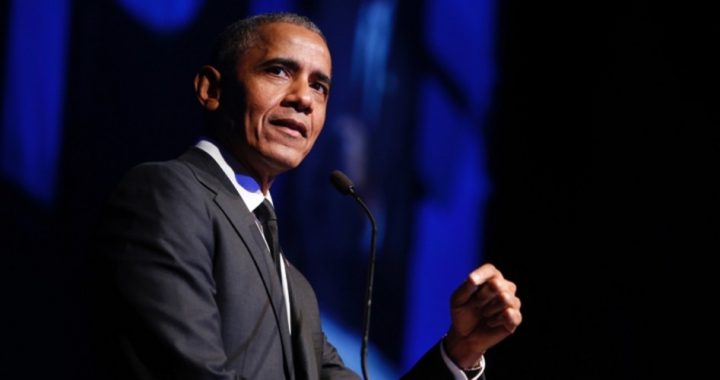
While many Americans believe that former President Barack Obama was a radical leftist bent on, in his own words, “fundamentally transforming the United States,” today’s extreme Left, which increasingly influences the Democratic Party, disagrees. Instead, according to a Vanity Fair article by T.A. Frank, they think Obama “spent eight years deferring a radical disruption” instead of leading one.
By the time Obama ascended to the presidency, argues Frank, the old establishment consensus was already on the ropes, shaken up by 9/11, subsequent failed wars in Afghanistan and Iraq, and the financial crisis. Radicals — a term Frank uses matter-of-factly to describe those who favor fundamental changes rather than mere policy tweaks — saw these events as opportunities to significantly alter government policy, whether by scaling back foreign intervention, by letting failing financial institutions collapse, or by prosecuting Wall Street executives for their roles in the financial crisis.
In his first presidential campaign, Obama tried to thread the needle between appealing to the establishment, whose support he needed, and the radicals, with whom he might have been more sympathetic. When it came to Wall Street bailouts, “much of his campaign rhetoric suggested he would” side with the establishment, while much hinted at radical reform, notes Frank. Likewise, Obama tried to portray himself not as the pro- or antiwar candidate but as the candidate who favored only the “right” wars, such as Afghanistan.
Once in office, however, Obama hewed to the establishment line, supporting bailouts and declining to prosecute Wall Street executives. “For millions of Americans, any residual trust in the competence and integrity of the ruling class was lost, and Obama had become part of the problem,” writes Frank.
From that point on, it was predictable that Obama, when forced to choose, would side with the establishment. Those who knew best told him to send a surge of troops to Afghanistan, so he did it. They told him to keep the records of detainee abuse under [George W.] Bush concealed, so he hid them. They said that nationalizing the banks or prosecuting the executives would be too risky, so he avoided it. They said that our trade agreements enriched the nation, so he promoted them. They called him callous when he originally refused to intervene in Libya, so he toppled its leader.
Many of these positions, welcome as they were within the Beltway, were out of sync with the mood of the country…. An anti-war and anti-corporatist message sent Ron Paul riding surprisingly high in 2012, and a filibuster by Rand Paul in 2015 over the issue of drone strikes prompted even Democrats to deploy the #StandWithRand hashtag. Tea Party Republicans began to team up with Democratic union members to oppose Obama’s trade deals. Fury over the bank bailouts made its way into the congressional campaigns of Republicans and Democrats alike.
In short, Obama was on the wrong side of history. In 2016, establishment presidential candidates went down to defeat, whether they were former Obama Secretary of State Hillary Clinton, or standard Republican politicians seeking their party’s nomination. Donald Trump, who at least appeared to be something of a radical, steamrolled all of them.
Trump has turned out to be considerably less radical than his campaign rhetoric suggested, though his mercurial style has helped maintain the appearance of change. This, plus the ascendance of avowed socialists such as Alexandria Ocasio-Cortez, suggests that radicalism, or at least a façade of it, is what voters want. Certainly the hard Left, with its newfound disdain for Obama, believes so. They think Obama didn’t go far enough, settling for the Affordable Care Act instead of single-payer healthcare and a “paltry” $831-billion stimulus package instead of a much larger one.
Democrats looking to unseat Trump next year are going to have a hard time pleasing both their increasingly extreme base and voters at large. Some, such as Joe Biden, are counting on Trump fatigue to push voters back into the arms of the establishment. Others, such as Bernie Sanders, revel in their perceived radicalism. But most, observes Frank, “seem to be betting on a bit of both — establishment-friendly economics and radical-friendly social views — assisted by charisma, youth, and identity.” In other words, whether they know it or not, they want to be the next Obama.
Photo: AP Images



